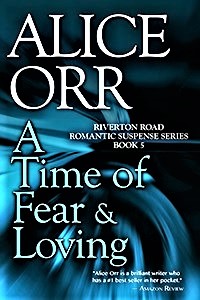Tell strong stories. That’s what every writer longs to do. What are strong stories anyway? To conquer an audience and make it your own you must tell a story that moves them. A story that moves them emotionally. Emotional Power is the impact your story must have.
The key to an emotionally moving storytelling is Character. The success of your story hangs on the strength of the main character you create and the way you employ that character as a storyteller. If your goal is to Tell Strong Stories your main character must move the narrative forward emotionally.
Why is your main character so important? Because your protagonist’s story is what connects you with the reader. You draw the reader in and make her care. That’s how you hook a reader. Mastering the art of the narrative hook is essential to writing a successful story.
You set that hook by creating a story in which the reader cannot help but become emotionally involved. First and foremost you do this by creating a character with whom the reader cannot help but become emotionally involved.
Which means that the reader must care about what happens to your character. The reader must begin to behave as if the Protagonist of your story were a real-life person they know personally. Your character’s defeats are the reader’s defeats. Your character’s triumphs are the reader’s triumphs.
When you make your readers feel this connection you have them hooked. And they will stay hooked from beginning to end.
 [For example, I was hooked by both Rick and Ilsa in the film Casablanca and wanted both of them to triumph. The conclusion turned out to be more complicated than that, which hooked me deeper still. Those screenwriters knew how to Tell Strong Stories.]
[For example, I was hooked by both Rick and Ilsa in the film Casablanca and wanted both of them to triumph. The conclusion turned out to be more complicated than that, which hooked me deeper still. Those screenwriters knew how to Tell Strong Stories.]
Here’s how to begin creating characters as real as Rick and Ilsa.
#1. First, the character must hook you. You as author must be as emotionally involved with your character as you want the reader to be.
#2. Which requires that you as author must know your character intimately. You must know your characters – especially your main character heroine or hero – from the Inside Out. Which means you must understand as deeply as you possibly can what it’s like to be your protagonist.
Why do you need to know so much about your protagonist? In practical terms, you must know enough to keep your readers reading. You need to know a lot about a character to make her sufficiently complex to carry the weight of your story from the beginning to the end of a book.
You must know enough about this character to bring him to life on the page and make the reader care about him.
 [For example, Charles Dickens brought Ebenezer Scrooge to life on the page in A Christmas Carol, and made us care what happened to him as well. Dickens knew Scrooge from the Inside Out.]
[For example, Charles Dickens brought Ebenezer Scrooge to life on the page in A Christmas Carol, and made us care what happened to him as well. Dickens knew Scrooge from the Inside Out.]
Here’s an exercise for getting to know your character from the Inside Out. Project yourself into your main character. Become your main character in your imagination. Then ask yourself the following five questions about that character.
#1. What does my main character want in this story? Is this desire significant enough to make a reader also want this thing for my character? Is this desire significant enough to make a reader want it for my character all the way through the length of an entire book? Or at some point does this desire pale into “Who cares?” territory for the reader?
#2. How much does my main character want this thing? Is this the most crucial need my character has ever experienced? Have I effectively communicated my character’s sense of urgency? How in specific scenes, action and dialogue can I turn up the story heat on the intensity of my main character’s desire?
#3. Why does my main character want this thing? Are her reasons – her motivations – admirable? Are these motivations logical in this story situation? Are her motivations believable to the extent that a reader will accept them as legitimate enough to motivate an intelligent, independent protagonist throughout the entire length of my story? Will a reader not only believe these motives but also adopt them on behalf of my character and root for her to achieve her desires?
#4. What does my main character not want? Is my character running away from something? If so, what is it and why is he on the run from it? Is my character avoiding something? If so, what is he avoiding and why? What is my character afraid of? Why is my character afraid of this thing?
 [Here’s another way to Tell Strong Stories in terms of drama, intensity and power. Make sure every character fears something. Especially your main character. For example, what does Scarlett O’Hara fear in Margaret Mitchell’s Gone with the Wind?]
[Here’s another way to Tell Strong Stories in terms of drama, intensity and power. Make sure every character fears something. Especially your main character. For example, what does Scarlett O’Hara fear in Margaret Mitchell’s Gone with the Wind?]
#5. What’s at stake for my main character in this story situation? What will happen if she fails to achieve what she wants or needs? Are those consequences dreadful enough to make a reader dread them as well? Who in my story besides my main character could also be adversely affected? How in specific scenes, action and dialogue can I intensify these stakes by making the potential consequences more devastating, pervasive and far-reaching? In order to Tell Strong Stories you must raise the stakes as high as your story will allow.
Brainstorm every possible response to each of these questions. Always push yourself beyond the first, most obvious possibility toward less expected, more original ones. The farther reaches of our imaginations are the place from which we Tell Strong Stories.
Alice Orr – https://www.aliceorrbooks.com
– R|R –
 Amanda Miller Bryce is the main character of the strong story that is Alice’s new novel A Time of Fear & Loving – Riverton Road Romantic Suspense Book 5. Meet Amanda HERE. You can find all of Alice’s books HERE.
Amanda Miller Bryce is the main character of the strong story that is Alice’s new novel A Time of Fear & Loving – Riverton Road Romantic Suspense Book 5. Meet Amanda HERE. You can find all of Alice’s books HERE.
What readers are saying about A Time of Fear & Loving. “I never want an Alice Orr book to end.” “Alice Orr is the queen of ramped-up stakes and page-turning suspense.” “Warning. Don’t read before bed. You won’t want to sleep.” “The tension in this novel is through the roof.”
“A budding romance that sizzles in the background until it ignites with passion.”
“The best one yet, Alice!”
http://facebook.com/aliceorrwriter/
http://twitter.com/AliceOrrBooks/
http://goodreads.com/aliceorr/
http://pinterest.com/aliceorrwriter/
Somehow you’re timing is always perfect. I needed this blog! I am in the throes of starting a new novel, and it just wasn’t working. Now I know why. Thanks!
Dear Chris. I know well the feeling you describe of the new project that cant seem to get on the right track for whatever reason and how troubling this can be. I think it can happen especially to authors who have written a number of books and been doing so for a long time, which is of course the case with you. The imagination mechanism may need a bit a a kick-start. That’s what exercises can do, like the one in this blog post. They can nudge the thinking just far enough off its usual route to allow a new perspective to illuminate the storytelling. Thank you for letting me know that this post was helpful to you. I am newly venturing back into teaching, via the blog medium, and knowing my efforts can be of help encourages me to continue. Meanwhile congratulations on having a new book in the works. I wish you wonderful progress and a full, rich writing experience. Alice
Dear Chris. You have commented on my blog posts in the past. I invite you to explore my most recent series. It is titled “Oh No I’m a Caregiver – Dementia – Our Cautionary Story.” These posts are of special significance to me. Dementia appears to be a reality destined to assault all of our lives in one way or another eventually. I believe that the story I have to tell – through my initial post and others yet to come at https://www.aliceorrbooks.com – has valuable insights to offer. For this reason, I hope you will read it and pass it on to others so that they might benefit from what I am learning and from those insights.
For example… My husband Jonathan, who has recently been diagnosed with dementia, is actually quite fine at this early stage. He is engaged in lots of cognitively powerful activities. He writes original memoir pieces that are very good and says this is the result of sitting in on so many of my writing workshops over the past forty-five years. He now finds more joy in writing than the drawing and music that were his usual creative pursuits in the past. This is good because, as you know, portraying characters and composing scenes require a deep level of focus and detail concentration which is very beneficial for him. He also loves jigsaw puzzling – the 1500-piece variety. Again much concentration is required plus he has fond memory associations of doing puzzles with his mom when he was a boy. He also reads a lot – challenging books, as well as his favorite New York Times articles. He does regular physical exercise and has also begun gardening at our church which has a large planted space in sore need of attention. Medically, he is taking a basic drug that has disappeared his brain fog for the timebeing. We also have excellent medical professionals on our team and on our side.
Dementia is not like the tv commercials portray it to be. Their purpose is to ramp up fear and sell very expensive, very dangerous drugs. There is a long, gradual period before extreme changes begin, and the aggressiveness these ads emphasize can often be mitigated with simple mood medications that are harmless and affordable.
Meanwhile, there is a real-life story to be told here of real-life experience. I hope you will read and share it. Dementia is a reality for many of us and, unfortunately, promises to be a reality for many more. Truth is our best armor against being cast into despair by the prospect. I hope to add a little to that sustaining truth. Dementia is one of the many ways all of us will evolve from this life into whatever may lay beyond. Passing on is our universal destiny. Some of those passages involve discomfort and unpleasantness. We can perhaps be a bit better prepared if we understand realistically what to expect.
That is what our story – Jonathan’s and mine – is meant to do. Help others – in an honest and caring fashion – to be prepared. Love and Blessings. Alice
Hi Alice,
Great job on the blog. I hope you are feeling much better.
Terry
Hi Terry. I am feeling better. Though I definitely need to learn patience because healing has its own timetable which isn’t necessarily mine. The body wins however and lets me know I’m not in charge right now. Meanwhile I find a haven in getting back to teaching which has always been a first love. The blog has turned out to be a good place for that, and I am grateful to be of help to those who stop by. Blessings. Alice
Dear Theresa. You have commented on my blog posts in the past. I invite you to explore my most recent series. It is titled “Oh No I’m a Caregiver – Dementia – Our Cautionary Story.” These posts are of special significance to me. Dementia appears to be a reality destined to assault all of our lives in one way or another eventually. I believe that the story I have to tell – through my initial post and others yet to come at https://www.aliceorrbooks.com – has valuable insights to offer. For this reason, I hope you will read it and pass it on to others so that they might benefit from what I am learning and from those insights.
For example… My husband Jonathan, who has recently been diagnosed with dementia, is actually quite fine at this early stage. He is engaged in lots of cognitively powerful activities. He writes original memoir pieces that are very good and says this is the result of sitting in on so many of my writing workshops over the past forty-five years. He now finds more joy in writing than the drawing and music that were his usual creative pursuits in the past. This is good because, as you know, portraying characters and composing scenes require a deep level of focus and detail concentration which is very beneficial for him. He also loves jigsaw puzzling – the 1500-piece variety. Again much concentration is required plus he has fond memory associations of doing puzzles with his mom when he was a boy. He also reads a lot – challenging books, as well as his favorite New York Times articles. He does regular physical exercise and has also begun gardening at our church which has a large planted space in sore need of attention. Medically, he is taking a basic drug that has disappeared his brain fog for the timebeing. We also have excellent medical professionals on our team and on our side.
Dementia is not like the tv commercials portray it to be. Their purpose is to ramp up fear and sell very expensive, very dangerous drugs. There is a long, gradual period before extreme changes begin, and the aggressiveness these ads emphasize can often be mitigated with simple mood medications that are harmless and affordable.
Meanwhile, there is a real-life story to be told here of real-life experience. I hope you will read and share it. Dementia is a reality for many of us and, unfortunately, promises to be a reality for many more. Truth is our best armor against being cast into despair by the prospect. I hope to add a little to that sustaining truth. Dementia is one of the many ways all of us will evolve from this life into whatever may lay beyond. Passing on is our universal destiny. Some of those passages involve discomfort and unpleasantness. We can perhaps be a bit better prepared if we understand realistically what to expect.
That is what our story – Jonathan’s and mine – is meant to do. Help others – in an honest and caring fashion – to be prepared. Love and Blessings. Alice
You always give the best advice, Alice!
I hope you’re on the mend now {{hugs}}
Hi Jacqui. I am on the mend. Thank you for asking. Like everything, healing is a process, which generally means there will be periods of slogging through and periods of feeling like I’m making headway. I am in that mix now. It’s interesting that in this trying time I have reverted back to teaching, where I can put my focus on others instead of on myself. I am pleased to hear that effort can do good. Blessings. Alice